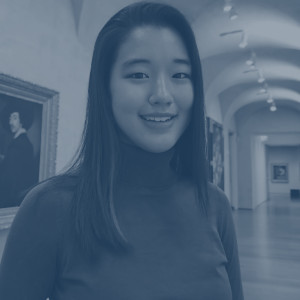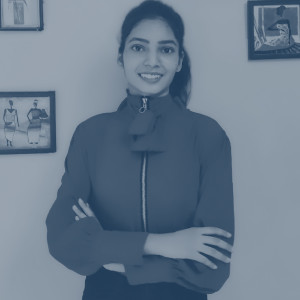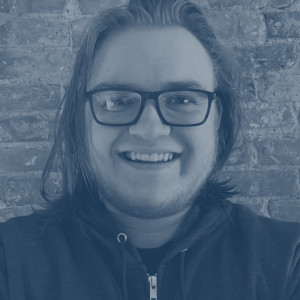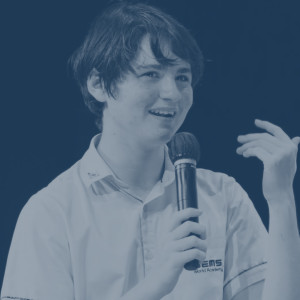Layan Ibrahim, 21
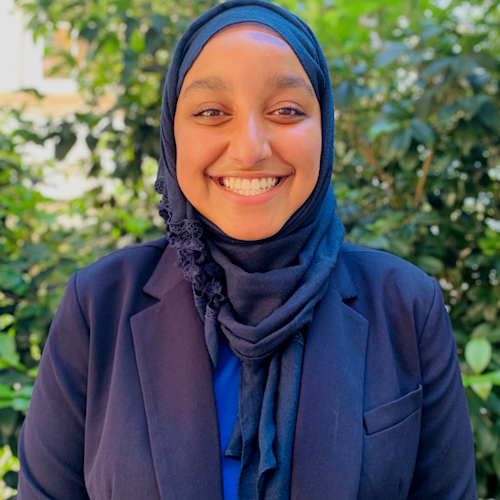
Layan’s Computer Science track didn’t start as expected. Yes, she came into Emory with the intent of a CS/Applied Mathematics major on the pre-med track, but her first introductory CS course was not all roses.
She ended up withdrawing from the class with the intent to change majors, which led her to Neuroscience and Behavioral Biology (NBB). She loved NBB, but deep down still had an interest in CS that she hadn’t been given the full opportunity to explore. Layan spotted a Facebook flyer promoting a medical hackathon hosted by Johns Hopkins called MedHacks. After getting over the initial surprise of finding this perfect combination of her interests, she signed up. The experience was amazing, resulting in the creation of a project that tackled an issue in the medical field. Meeting people from all over the world, each at different stages in their career, motivated Layan to compete in more hackathons, and she’s never regretted it.
Among the seven hackathons Layan has participated in so far, her favorite work has been on the Offline Movement project at the Global Developer Challenge. The event took place during the summer of 2020, the peak of COVID-19 and the mass outcry for social justice across the U.S., which forced Layan to break out of her comfort zone by reaching out to people that she had never met. What began as an uncomfortable concept became an immediate reward, helping her to connect with people during such a novel time. As a Black Muslim woman living in the United States, the protests hit home for Layan. She and her team took the necessity for social change and turned their experiences into Offline Movement, a phone application that allows users to connect to others without using cellular data or the internet.
To enforce privacy, the app included encrypted messages and tools to blur individuals’ faces in photos and videos. The privacy of communication at the forefront of Offline Movement makes it a savior during disaster situations and mass gatherings. The importance of this was noticed by the hackathon judges too, as the team ended up winning first place out of 34 teams. This win, and the impact she made, made this her most fulfilling project to date.
Looking back, it’s hard to deny the growth Layan has gone through since her first hackathon. Where she once thought that the fields of tech and healthcare lived separately, she now sees that both are very interdisciplinary. The introduction to so many people that share similar interests with Layan has left her even more fulfilled. For example, one of Layan’s team members that took part in Offline Movement is currently seeking to apply CS innovations to medicine as a current med student at Uniformed Services University. Layan was even able to bring the pressing issue of the pandemic to a hackathon that addressed the issue of returning to work after COVID-19. One of the judges, after seeing the project’s honorable mention, reached out to her and her team to see if they would like to pursue the project further. Seeing these shared interests grow in others alongside her has only bolstered Layan’s passion for both CS and medicine.
The tech skills Layan is learning along the way are becoming more and more applicable to individuals who are pursuing an MD-PhD, which is Layan’s ultimate goal, due to the significant research aspect of the career. The computational aspect of a career in public health and neuroscience comes from the need for knowing how to code for the sake of data analysis. With this in mind, Layan took it upon herself to learn Python as well as R and R Studio. Her long nights of hacking and working with different teams at hackathons has prepared her for the long hours a physician-scientist may be faced with. Thanks to hackathons, it’s key to Layan that she recognizes any potential to build skills that suit her desired career field and beyond.
Layan’s story in the hacker community is very non-traditional. She’s not the typical CS major that came into undergraduate studies with years and years of coding experience. Having nearly fallen out of the tech field entirely, she’s more than grateful that hackathons led her to see the desire that stuck in the back of her head during her tech hiatus. Layan is a testament to the ability to bounce back in the tech field, thanks to her immense drive and helpful community. She considers herself relatively fresh, making her start in 2018 because of her passion for medicine and tech. Her ability to recognize the interdisciplinary nature of the two and her drive to combine them made her specific path unique. Through this drive came more and more unique opportunities and knowledge. She hopes that this non-traditional path can be an example to other aspiring hackers that there is not a right way to break into tech.
The field is so large that it doesn’t mandate everyone following the same path to belong in the hacker community. It’s important to Layan to be an example that winning hackathons isn’t everything. It took over a year of competition for her to place in an event. But the lessons learned, skills gained, projects created, and people met are the reasons that she attends hackathons. Being yourself and pursuing your interests will be enough to make you stand out.
Quick Facts
Layan Ibrahim, 21

Layan’s Computer Science track didn’t start as expected. Yes, she came into Emory with the intent of a CS/Applied Mathematics major on the pre-med track, but her first introductory CS course was not all roses.
She ended up withdrawing from the class with the intent to change majors, which led her to Neuroscience and Behavioral Biology (NBB). She loved NBB, but deep down still had an interest in CS that she hadn’t been given the full opportunity to explore. Layan spotted a Facebook flyer promoting a medical hackathon hosted by Johns Hopkins called MedHacks. After getting over the initial surprise of finding this perfect combination of her interests, she signed up. The experience was amazing, resulting in the creation of a project that tackled an issue in the medical field. Meeting people from all over the world, each at different stages in their career, motivated Layan to compete in more hackathons, and she’s never regretted it.
Among the seven hackathons Layan has participated in so far, her favorite work has been on the Offline Movement project at the Global Developer Challenge. The event took place during the summer of 2020, the peak of COVID-19 and the mass outcry for social justice across the U.S., which forced Layan to break out of her comfort zone by reaching out to people that she had never met. What began as an uncomfortable concept became an immediate reward, helping her to connect with people during such a novel time. As a Black Muslim woman living in the United States, the protests hit home for Layan. She and her team took the necessity for social change and turned their experiences into Offline Movement, a phone application that allows users to connect to others without using cellular data or the internet.
To enforce privacy, the app included encrypted messages and tools to blur individuals’ faces in photos and videos. The privacy of communication at the forefront of Offline Movement makes it a savior during disaster situations and mass gatherings. The importance of this was noticed by the hackathon judges too, as the team ended up winning first place out of 34 teams. This win, and the impact she made, made this her most fulfilling project to date.
Looking back, it’s hard to deny the growth Layan has gone through since her first hackathon. Where she once thought that the fields of tech and healthcare lived separately, she now sees that both are very interdisciplinary. The introduction to so many people that share similar interests with Layan has left her even more fulfilled. For example, one of Layan’s team members that took part in Offline Movement is currently seeking to apply CS innovations to medicine as a current med student at Uniformed Services University. Layan was even able to bring the pressing issue of the pandemic to a hackathon that addressed the issue of returning to work after COVID-19. One of the judges, after seeing the project’s honorable mention, reached out to her and her team to see if they would like to pursue the project further. Seeing these shared interests grow in others alongside her has only bolstered Layan’s passion for both CS and medicine.
The tech skills Layan is learning along the way are becoming more and more applicable to individuals who are pursuing an MD-PhD, which is Layan’s ultimate goal, due to the significant research aspect of the career. The computational aspect of a career in public health and neuroscience comes from the need for knowing how to code for the sake of data analysis. With this in mind, Layan took it upon herself to learn Python as well as R and R Studio. Her long nights of hacking and working with different teams at hackathons has prepared her for the long hours a physician-scientist may be faced with. Thanks to hackathons, it’s key to Layan that she recognizes any potential to build skills that suit her desired career field and beyond.
Layan’s story in the hacker community is very non-traditional. She’s not the typical CS major that came into undergraduate studies with years and years of coding experience. Having nearly fallen out of the tech field entirely, she’s more than grateful that hackathons led her to see the desire that stuck in the back of her head during her tech hiatus. Layan is a testament to the ability to bounce back in the tech field, thanks to her immense drive and helpful community. She considers herself relatively fresh, making her start in 2018 because of her passion for medicine and tech. Her ability to recognize the interdisciplinary nature of the two and her drive to combine them made her specific path unique. Through this drive came more and more unique opportunities and knowledge. She hopes that this non-traditional path can be an example to other aspiring hackers that there is not a right way to break into tech.
The field is so large that it doesn’t mandate everyone following the same path to belong in the hacker community. It’s important to Layan to be an example that winning hackathons isn’t everything. It took over a year of competition for her to place in an event. But the lessons learned, skills gained, projects created, and people met are the reasons that she attends hackathons. Being yourself and pursuing your interests will be enough to make you stand out.
